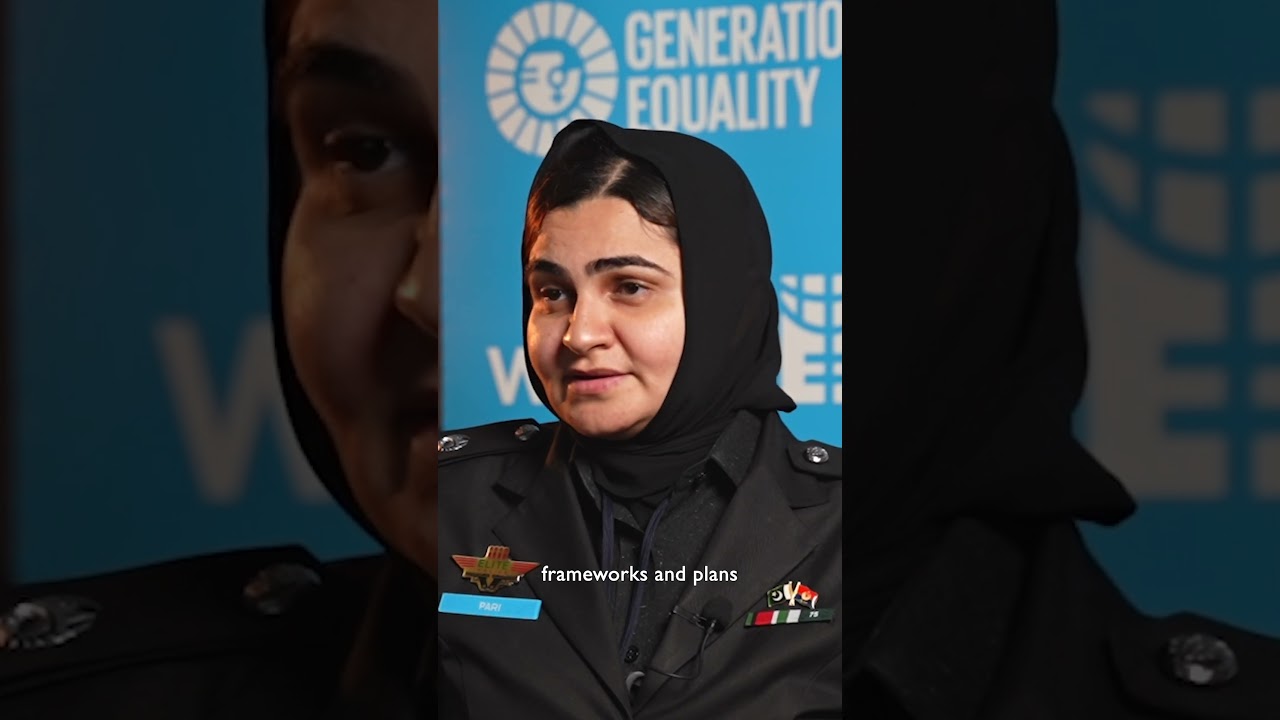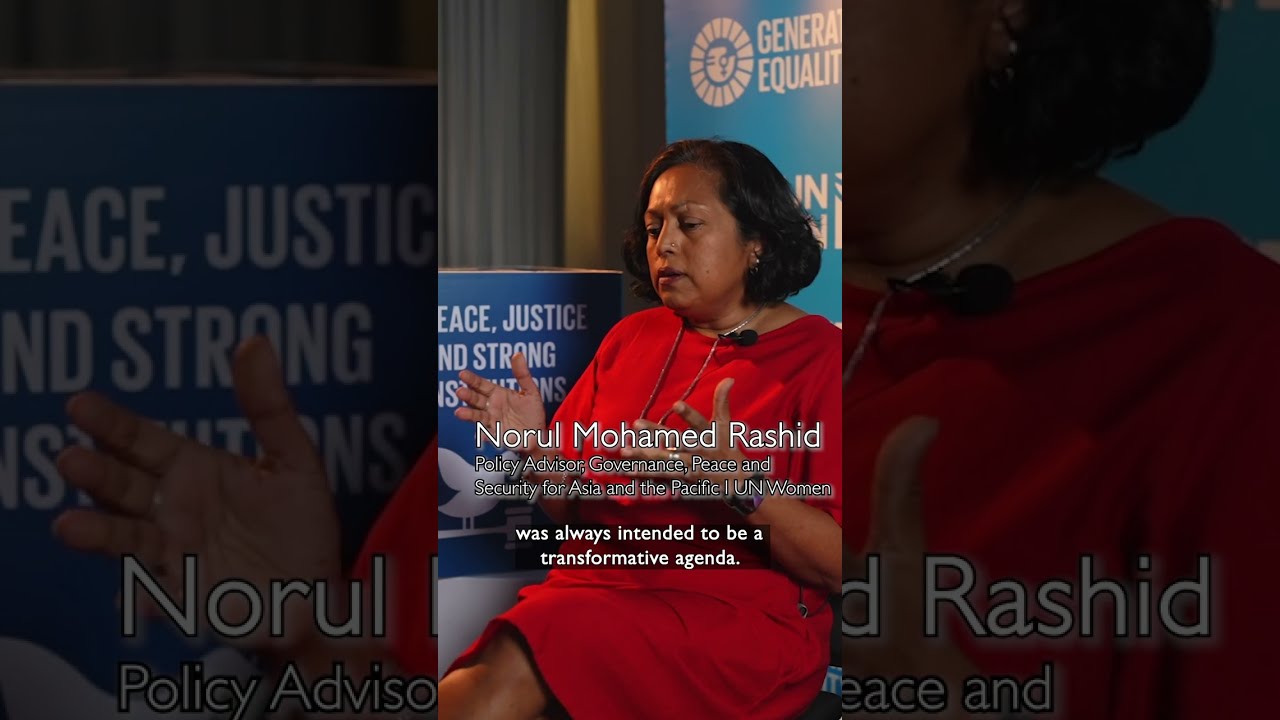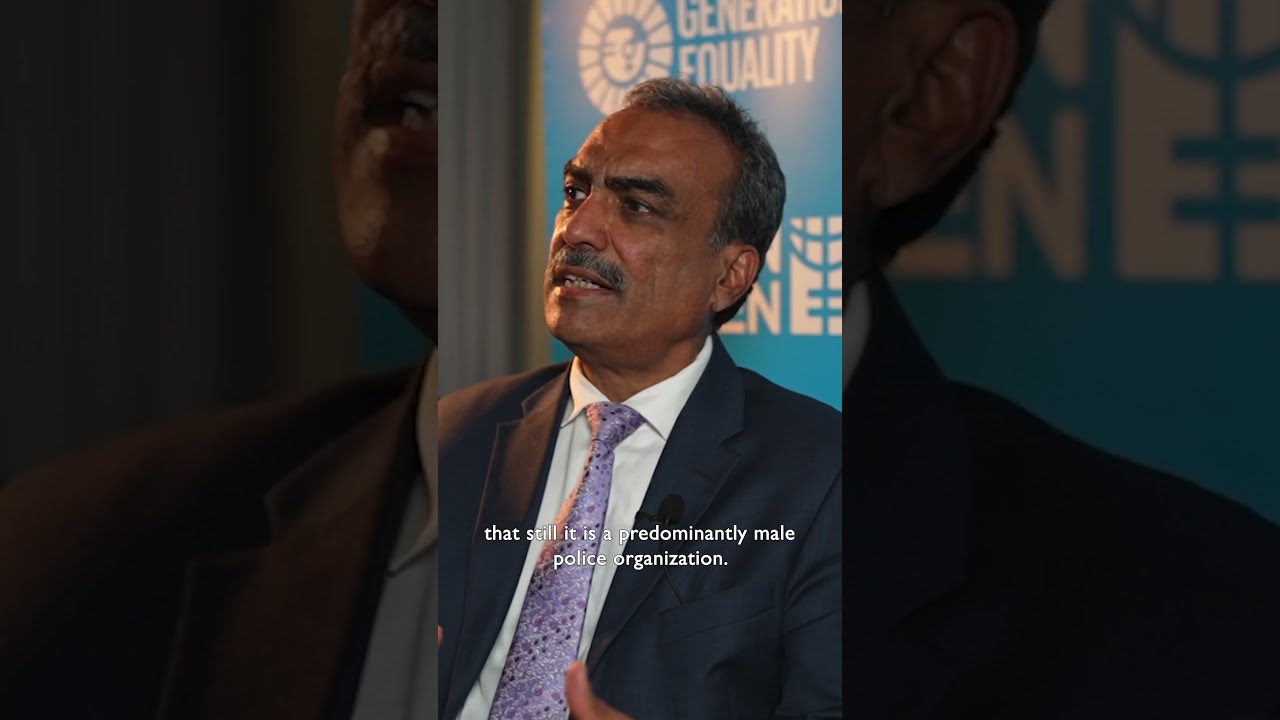Exchange of promising practices to close gender gap in policing in South and South-East Asia
Date:
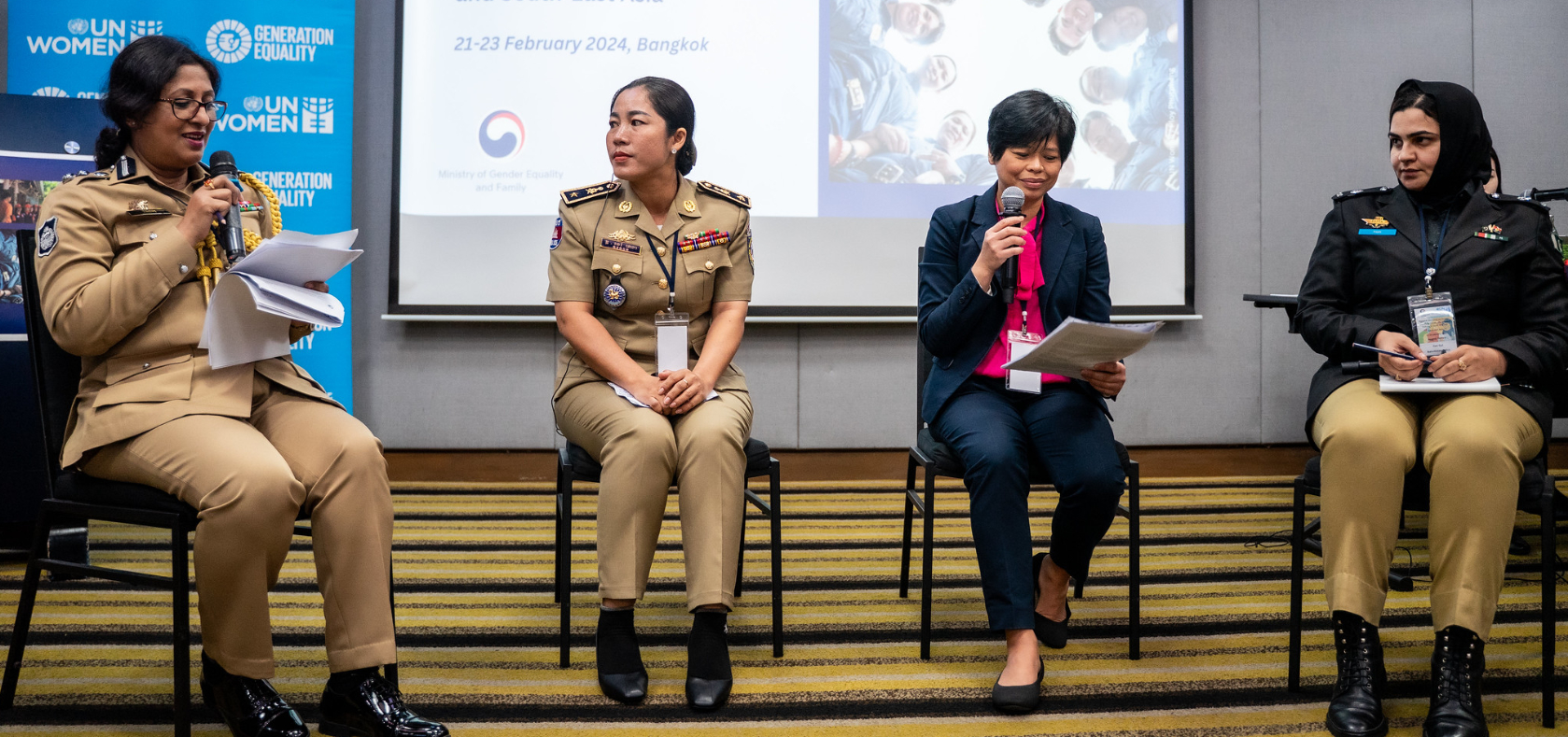
An exchange of promising strategies and practices between representatives of eight Asian national police services combined with capacity building of officers is set to make community-oriented policing in the region more accountable, inclusive and representative of all community members.
Hosted by UN Women in partnership with the Republic of Korea and in collaboration with the UN Police Standing Police Capacity (SPC), the Regional Workshop on Gender-Responsive Community-Oriented Policing in South Asia and South-East Asia attracted over 40 participants from Bangladesh, Cambodia, Indonesia, Nepal, Pakistan, Thailand, Timor-Leste and Viet Nam, as well as UN officials.
During the workshop, held in Bangkok from 21-23 February 2024, it was the courage of participants who shared their lived experiences as police which opened doors to new possibilities for gender-responsive community-oriented policing.
Community-oriented policing works preventively to change conditions that lead to crime and insecurity rather than responding belatedly to individual incidents. From a gender perspective, at the community level this means involving women in problem solving, early warning mechanisms and conflict prevention, with prevention seen as integral.
At the policy level, UN Women is supporting national police services in the region to re-think community-oriented policing, with the shared goal of seeing women meaningfully participate and lead community-oriented policing initiatives and contribute to sustaining peace and resilience.
This is through the Sustaining Peace in Partnership: Women’s Leadership in Community-Oriented Policing initiative, made possible with the generous support of the Government of the Republic of Korea.
“Women in law enforcement is not just a matter of equality, it’s a necessity. In today’s world where emerging and non-traditional security risks are also affecting social cohesion and stability, ensuring security for all has become a very important priority shared responsibility,” said Sarah Knibbs, UN Women’s Deputy Regional Director for Asia and the Pacific, during the workshop’s opening session.
“We are really inspired, not only by your work in the communities but also by your courage, considering many police operate in challenging environments. We want to support your efforts aimed at achieving gender equality, including overcoming barriers that prevent women from joining the police and taking on leadership roles,” said Ms Knibbs.
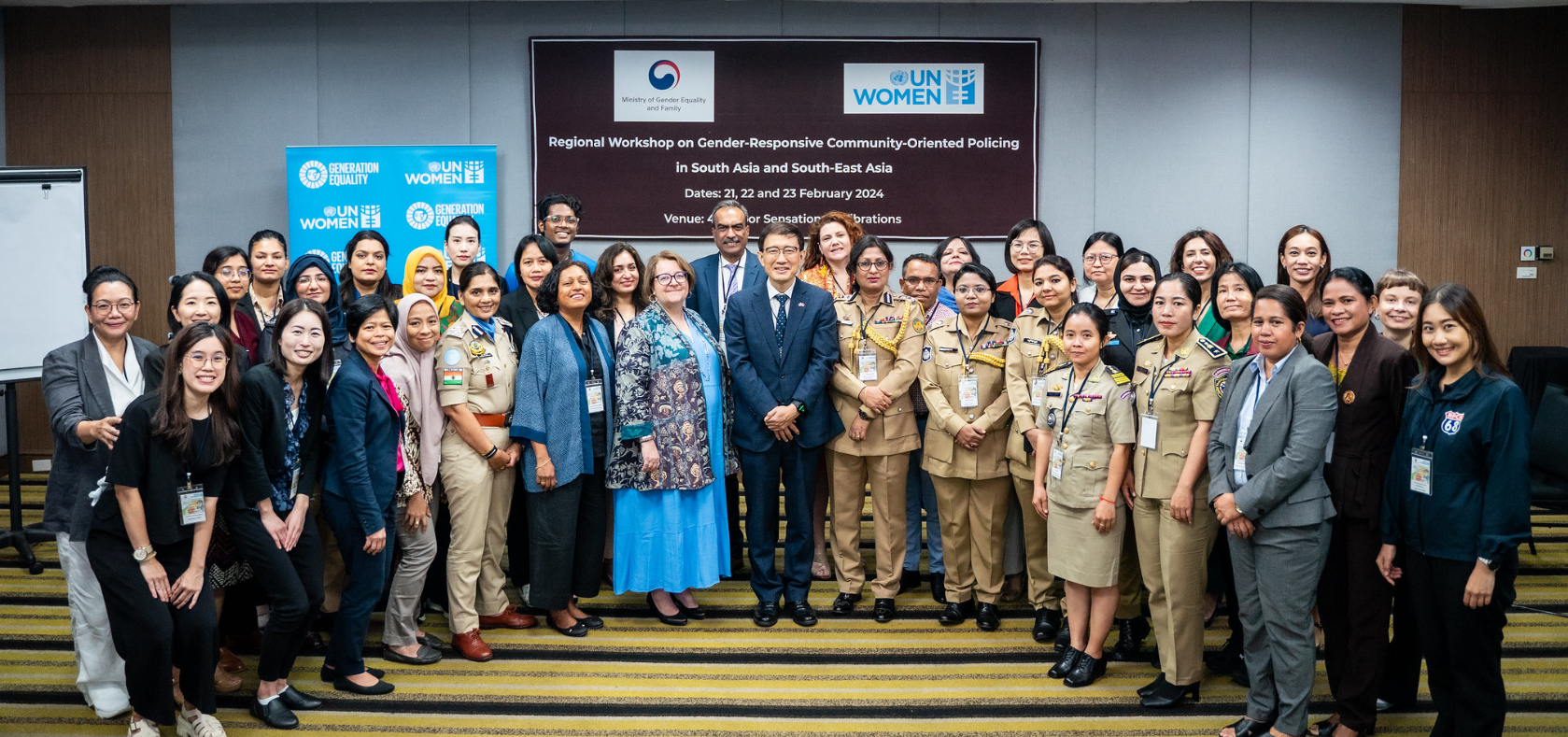
During his opening remarks, Mr Jeong-han Hahm, Deputy Chief of Mission at the Embassy of the Republic of Korea in Thailand, underlined his government’s commitment to enhancing women’s participation and leadership in policing for better security and sustainable peace.
“Law enforcement and justice sector officers play a crucial role in the implementation of the women, peace and security (WPS) agenda, ensuring that gender perspectives are integrated into security practices, policies, and strategies. This integration makes the WPS agenda's goals a tangible reality on the ground,” said Mr Hahm.
“Today’s workshop represents a unique confluence of minds and missions, offering fertile ground for exchanging ideas, best practices, and strategies to forge a more inclusive, just, and effective community-oriented policing,” added Mr Hahm.
The workshop participants were equipped to develop and implement gender-responsive community-oriented policing policies and plans and exchanged ideas on how to improve community engagement and address the early warning signs of crime and violence.
“Right now in Timor-Leste, we are developing our gender strategy with UN Women’s support. At this workshop we want to pick good approaches and learn so we can prepare a good gender strategy for the National Police of Timor-Leste (PNTL). We’re also consulting with communities and the relevant department of PNTL to get their inputs so that we understand what it is they need,” said Chief Inspector Maria Fatima Martins, Head of Gender Equality and Inclusion Cabinet from the National Police of Timor-Leste.
UN Women is promoting a shift from a securitized and militarized approach to security in Asia and the Pacific. It advocates for an inclusive approach through its regional initiative, the Regional Framework Towards Peaceful, Inclusive Societies: Advancing the Women, Peace and Security Agenda and Inclusive Governance in the Asia-Pacific Region (2023-2027).
"South Asian and South-East Asian countries, while implementing gender-responsive community-oriented policing, should encourage the participation of women in decision-making, crime prevention, dispute resolution, and trust building in communities they serve; in line with the spirit of the UN frameworks on gender mainstreaming in law enforcement, peace, and security. Such frameworks can serve as useful starting points for all police organisations," said Dr Ehsan Sadiq, Director General of Pakistan’s National Police Bureau.
Integrating a WPS lens to community-oriented policing is fundamental to making policing more relevant and effective in understanding the needs of women and their communities, and tailoring policing strategies to people’s priorities and concerns.
Participants also shared recruitment and retention policies and other steps being taken at the national and district levels to make policing a more appealing career for women and overcome broader social pressures.
Brigadier-General Nov Ratana, Deputy Commissioner for Anti-Human Trafficking and Protection of Children and Gender Work at the Provincial Police Commissariat of Kratie, Cambodia, explained that while women comprised just two per cent of police officers when she began her career 17 years ago, this had risen to around 10 per cent and should increase further due to a recent dramatic rise in interest from women.
“There is growing recognition that women can serve communities and the nation. I say ‘I am a woman. I have many responsibilities and I can do it’. Women must dare to say ‘yes’, seize the opportunity given, and work hard to get good results and build cooperation and solidarity both inside and outside the police service,” said Brigadier-General Ratana.
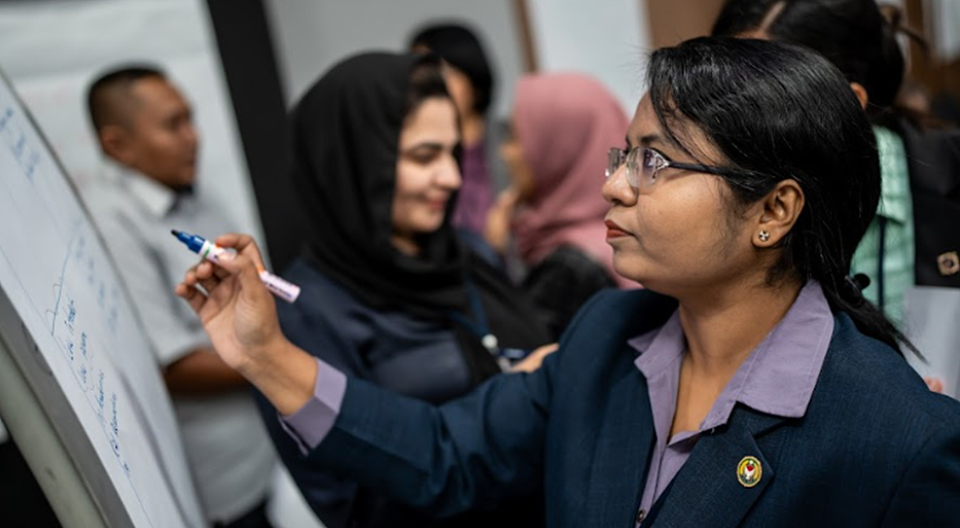
In 2023, SPC and UN Women conducted assessments in four countries – Bangladesh, Pakistan, the Philippines and Thailand – to identify barriers, promising practices and partners in gender-responsive community-oriented policing in each country. Further learning obtained during the workshop will be combined with the results of the assessments in a report due to be released by UN Women in mid-2024.
UN Women will continue promoting gender-responsive community-oriented policing and leadership in cooperation with national police services and other stakeholders in the Asia-Pacific region.
